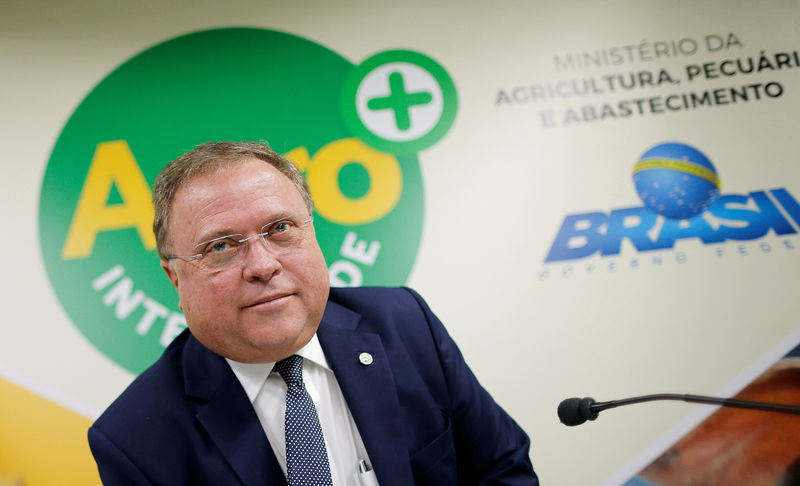By Sybille de La Hamaide
PARIS (Reuters) - The trade dispute between the United States and China has benefited Brazil so far but could prove harmful long term as higher grain prices will make the Latin American country's exports less competitive, Brazil's farm minister said.
Analysts and traders are betting that Brazilian producers will reap benefits from the duties China imposed on a range of U.S. products from soybean to frozen pork in response to U.S. President Donald's Trump's decision to place tariffs on steel and aluminum from countries including China.
But Brazil's agriculture minister Blairo Maggi fears the higher demand for soybeans will push local prices so much that it will hamper Brazil's competitiveness and eventually dent its market shares.
"I am very concerned. In the short term Brazil is gaining a lot, it's true," Maggi told Reuters in an interview in Paris.
"But in the medium term and in the long term it can be a problem because nearly everything we export, be it poultry or pork, rely on soy for food," he said.
Brazilian prices have fallen sharply on international markets helped by a weaker real currency (BRBY) but higher demand pushed local prices higher, making feed more expensive for national poultry and pork output.
In local currency terms, a 60-kg bag of soy rose 8.3 pct to 85.97 reais ($23.6) since March, according to price data from B3 SA (SA:B3SA3), Brazil's stock market and commodities futures operator.
"And if soybean rises in Brazil that means it is less expensive comparatively in the United States and since they are also poultry and pork producers, they will be more competitive and it will penalize us," Maggi said.
Brazil is the world's largest poultry exporter.
"At some point China and the United States will find an agreement but we will potentially have lost some markets."
The U.S. trade war with China is "on hold" after the world's two largest economies agreed to drop their tariff threats while they work on a wider trade agreement, U.S. Treasury Secretary Steven Mnuchin said on Sunday.

Separately, Maggi said he believed there would be an agreement between the European Union and the Mercosur group of Latin American countries on agriculture issues by the end of the year.